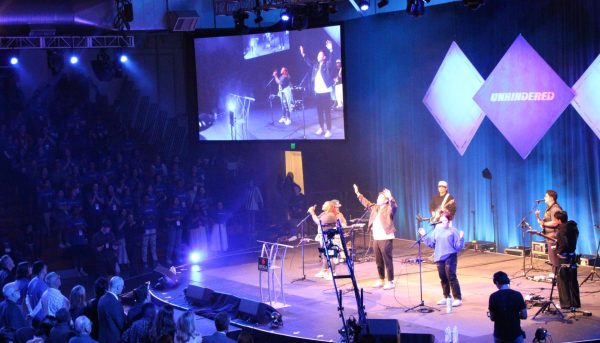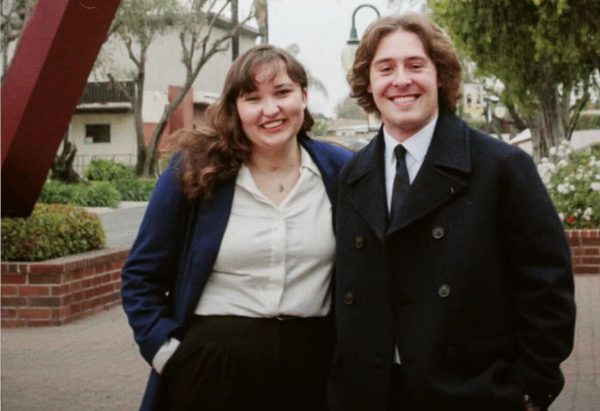Enrollment impacts many areas
With the largest incoming class at Biola yet, it’s impacting students in all arenas – housing, admission, and financial aid.
September 2, 2010
All students on the fall housing waiting list have been placed, according to André Stephens, senior director of undergraduate admissions. Stephens said the waiting list held about 75 students throughout the placement process.
Housing Impact
With more than 1,200 freshmen, transfers and re-admits arriving at Biola, Biola housing has added extra triples and converted the floor lounges in Hope Hall into dorm rooms to accommodate the flow of new students. Each of the large rooms holds three to four students.
Beth Tabor, associate dean of residence life, said the converted rooms are only a temporary solution. Housing will plan further ahead for next year and set aside more rooms as triples.
“The hope and plan is that it will be a one year solution, and if we can break them down earlier, then will will,” Tabor said.
While students like junior Lauren Wilk who live in the converted rooms are enjoying the extra space, others expressed disappointment.
“The lounges were a good semi-private place to do things like go work out or watch movies, or have some bonding-time,” said sophomore Kristin Walti, who lives in Hope. “Now we can only do that in the floor lobby where it’s often crowded with large groups who tend to be loud.”
“Students are disappointed because the lounges are great spots for community, but it does get 30 more students [housed],” said Hope North residence director Scott Barrett .
Acceptance
Biola needed such extra space this year with the largest incoming class, according to Laura Springer of Biola Institutional Research. Springer said she expects the number of registered students to grow as students finish registration and finalize payments between now and the September 7 deadline.
“I’m more excited than I’ve ever been,” said Biola president Barry Corey, who is entering his fourth year as president. “There are so many signs that God has been blessing the university as we’ve been faithful to Him.”
“We did not lower the standards on admissions. We have a record number of those qualified by the same standards we’ve been using,” Corey said.
Biola has an acceptance rate around 85 percent, according to Stephens. Accepted students must have at least a 920 on their Critical Reading and Math SAT or a 19 on their ACT. In addition to being a believer, admitted students also need at least a 3.0 high school GPA.
“Students who don’t meet those minimum standards, depending on how far below they fall, either are not admitted or have to go through a committee process evaluated by staff and faculty,” said Stephens.
Stephens said Admissions denied almost 200 student applications this year because the students didn’t meet Biola’s standards or didn’t seem to fit the university.
As far as returning students are concerned, Bascom said Biola has one of the best retention rates among schools of its kind, and university leadership spends just as much effort on retaining students as it does gaining new students.
During the three previous fall terms, Biola had an average undergrad retention rate of 93 percent, according to Springer.
Every year, university leaders meet to set goals for the number of incoming and returning students, Stephens said. “[We try] to recruit based on that.”
In addition to its regular efforts, Admissions has put extra emphasis on Facebook and other multimedia methods in its most recent recruiting efforts, Stephens said.
Aspiring for Affordability
Corey said Biola has done its best to stay consistent in the financial awards it gives to incoming students and to make students aware of what aid they will receive over the course of their education.
Stephens pointed to affordability as one of Biola’s 12 goals and aspirations and said there are several reasons other than financial reasons that students leave.
“A lot of families make sacrifices to be here because they believe this is where God is calling them,” Stephens said. “There are definitely more families where parents lost jobs or reduced hours. It’s just a reality we have to work with. It’s exciting for us to be in this economy that’s really tough and to see family and students and faculty committing to Biola.”






